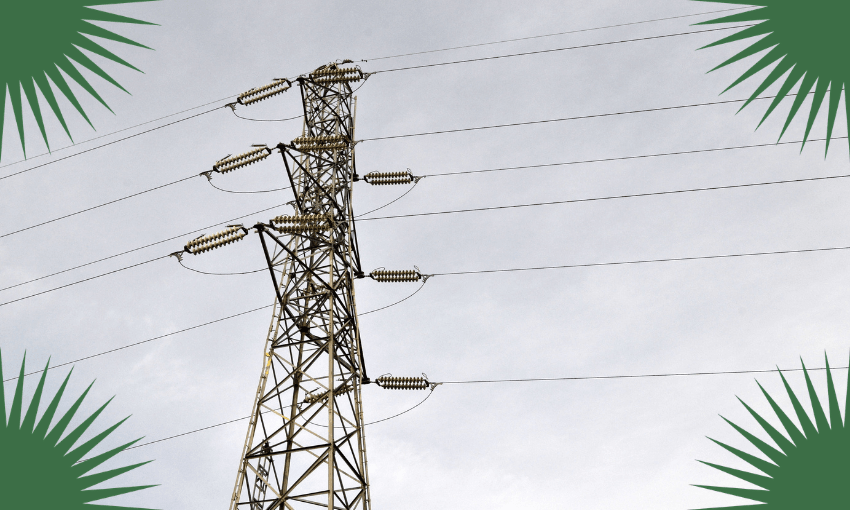Protests in many forms were promised by Te Pāti Māori today for the opening of parliament. Was it all legal? Andrew Geddis explains.
Apparently something dramatic happened in parliament today?
Well, sort of. It was the “commission opening”, step one of the two-day-long official commencement ceremony for the new parliamentary term. Basically, the MPs got warned by the governor general that she’s comin’ up so they better get this party started.
Was that a P!nk reference? Is she our governor general?
No. She isn’t.
Just stick to the legal stuff please.
Technically, it’s the sovereign that summons parliament to carry out the sovereign’s business (because history and we simply adopted the British way of doing things). So, the governor general, being the sovereign’s representative here in Aotearoa New Zealand, sends “commissioners” to tell the MPs to get themselves ready and able to act. They then do so by getting sworn in and choosing a speaker to run parliament’s proceedings.
Once that’s all done, the governor general herself turns up in person tomorrow and kicks things off properly by delivering “the speech from the throne” as written for her by the new coalition government. It basically sets out the government’s statement of intent for the parliamentary term – the legislation it wants MPs to pass into law.
How very formal and anachronistic. But if it’s just a fun excuse for some dress up play acting, why care?
Well, there was a bit of extra potential drama added this year when Te Pāti Māori appeared to say that its six MPs would refuse to swear that they “will be faithful and bear true allegiance to His Majesty King Charles the Third, His heirs and successors, according to law” as written in the official oath.
Maybe understandable … but also, so what?
By law, these particular magic words have to be uttered in exactly this form before an MP is allowed to take their seat and thus take part in parliamentary proceedings such as voting, debating and the like. Think of it as the legal equivalent of that scene where Hermione annoyingly schools Ron on the need for exactitude in spell craft.
You’re starting to lose me.
The point is, a failure to swear this oath in the prescribed form means that an MP has to leave the chamber (the bit of parliament where MPs sit) straight away. They can then come back later and have another go at it, but unless and until they do they are an MP in name only.
Meaning what?
Well, if Te Pāti Māori’s six MPs couldn’t vote on parliamentary business then National and Act would have a majority without needing New Zealand First. But it seems pretty unlikely that National blow up the coalition government in the hope that Te Pāti Māori would choose to stay outside parliament long term.
More importantly, not being able to sit, speak and vote in parliament means Te Pāti Māori couldn’t use it as a public forum to oppose the coalition’s actions. It also raises the question of whether voters in the Māori seats were sold a bit of a dummy by voting for candidates that have no intention of then doing the job of MPs.
Did we then get the stand-off we all secretly hoped for, because we don’t have enough drama going on already?
Te Pāti Māori’s MPs couldn’t mess with the actual oath by changing its terms at the table of the House (the place you have to stand to swear it). Hone Harawira discovered this back in 2011 when he tried to take his own oath of allegiance (with the formal oath then tacked onto the very end of it). The speaker didn’t even let him get to that bit before kicking him out of the House.
Not covered by the parliamentary rules, however, is what MPs can and can’t do before they get up to the table to swear the oath. And so, when called on to come forward, Te Pāti Māori’s MPs first stood at their seats and delivered a kind of “pre-oath” pledge of allegiance to Te Tiriti o Waitangi, tikanga and mokopuna. They then came forward and took the oath using the formal wording as required by law.
(With maybe just a little bit of clever wordplay thrown in, that is. Tākuta Ferris, Debbie Ngarewa-Packer and Rawiri Waititi took an oath in te reo Māori “ki Kīngi harehare”. Apparently “Haarehare” is the transliteration of “Charles” in East Coast reo dialect. However, “harehare” means “rash” and can be used as an insult. Who knows <insert innocent face> which meaning was really intended?)
Very clever. But, also, isn’t it all just a wee bit silly?
Well, the opening of parliament is suffused with symbolism and performative meaning. So seeking to challenge, or to subvert, that symbolic meaning is entirely apt for a party elected precisely to upend the status quo. After all, parliament is a place where traditions and customs have to be open to challenge and renegotiation by all the various members who are chosen by the people of New Zealand to sit in it. Democratic dissensus and contestation doesn’t end once the places in parliament are filled.
And also, let’s be honest – the journey of Te Pāti Māori’s MPs to the front of the chamber was way more exciting and moving than the quiet trudge of our other 116 representatives. A ceremonial opening that had more of this kind of engagement would make our parliament a much more relevant and appealing place.





